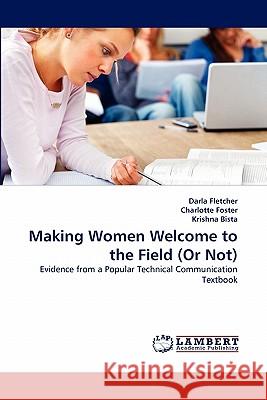Making Women Welcome to the Field (or Not) » książka
Making Women Welcome to the Field (or Not)
ISBN-13: 9783844323535 / Angielski / Miękka / 2011 / 72 str.
This book examines portions of the first nine editions of a popular technical writing textbook, Reporting Technical Information, in an attempt to discern whether the text made female readers feel welcome to the profession of technical communication. In particular, instances of citations of authorities and illustrative hypothetical people in two chapters of each edition were classified by gender. Although these citations and examples were heavily male in the first edition and remained heavily male through the ninth edition, over the thirty-year period some changes were made to improve the gender balance. Awareness of gender, when selecting authorities to cite and when creating hypothetical characters to illustrate concepts, can help authors of future textbooks make them more welcoming of women and students of various ethnic backgrounds who will be using these textbooks.
This book examines portions of the first nine editions of a popular technical writing textbook, Reporting Technical Information, in an attempt to discern whether the text made female readers feel welcome to the profession of technical communication. In particular, instances of citations of authorities and illustrative hypothetical people in two chapters of each edition were classified by gender. Although these citations and examples were heavily male in the first edition and remained heavily male through the ninth edition, over the thirty-year period some changes were made to improve the gender balance. Awareness of gender, when selecting authorities to cite and when creating hypothetical characters to illustrate concepts, can help authors of future textbooks make them more welcoming of women and students of various ethnic backgrounds who will be using these textbooks.











